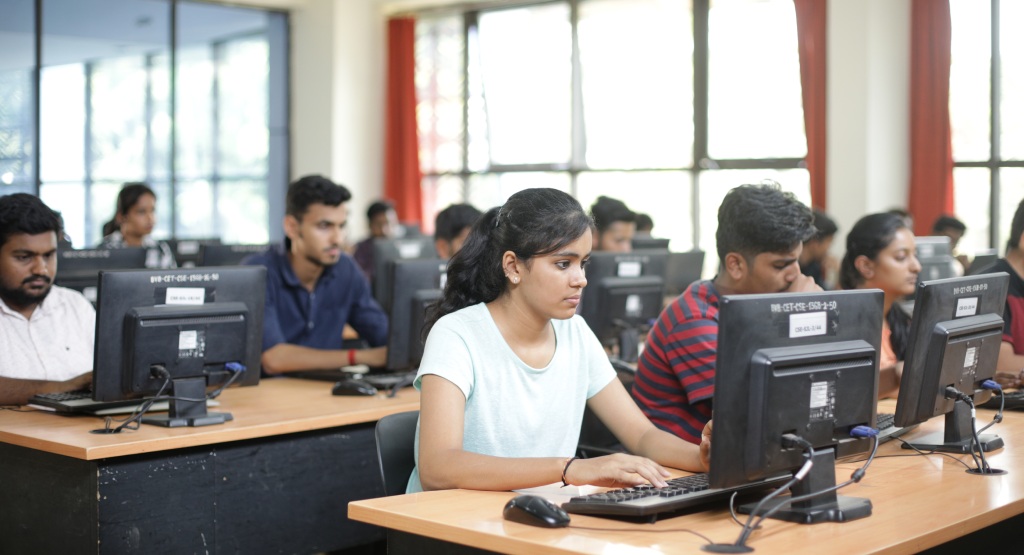Computing has permeated our lives and very few areas in modern society are untouched by computer science.
Every field of human endeavour, be it transportation, defence, entertainment, healthcare, education, communication, or social interaction, is impacted positively by it. Computer science is the study of computational systems, including the theoretical foundations of computing, the design and development of software systems, and the application of computing to solve complex, challenging problems in all kinds of business, industry, scientific, and social contexts.

The core of the Computer Science Engineering (CSE) curriculum includes programming languages and methodologies, databases, the analysis of algorithms and data structures, and the study of operating systems. The curriculum continues with courses in advanced data structures, data analytics, cloud computing, artificial intelligence, cyber security, and software-driven networks. Theoretical learning is integrated with hands-on laboratories and course projects to make the courses highly experiential and contextual.
The students can choose specializations within the program in Cloud computing, Big Data, Artificial Intelligence, and deep learning. The coursework is complemented with interventions to sharpen or develop soft skills like communication, teamwork, interpersonal skills, and critical thinking, which are essential for a successful career.
From the first to the final year, students have opportunities to carry out several projects in which student teams, working with faculty/industry mentors, put their knowledge to work on a real-world issue to find innovative solutions to engineering problems. As part of the courses, students are introduced to coding competition platforms to level up their programming skills and compete with programmers worldwide. The program also offers the option of doing an internship with industry or research labs. The advanced state-of-the-art research laboratories allow students to work on projects in niche technology areas.